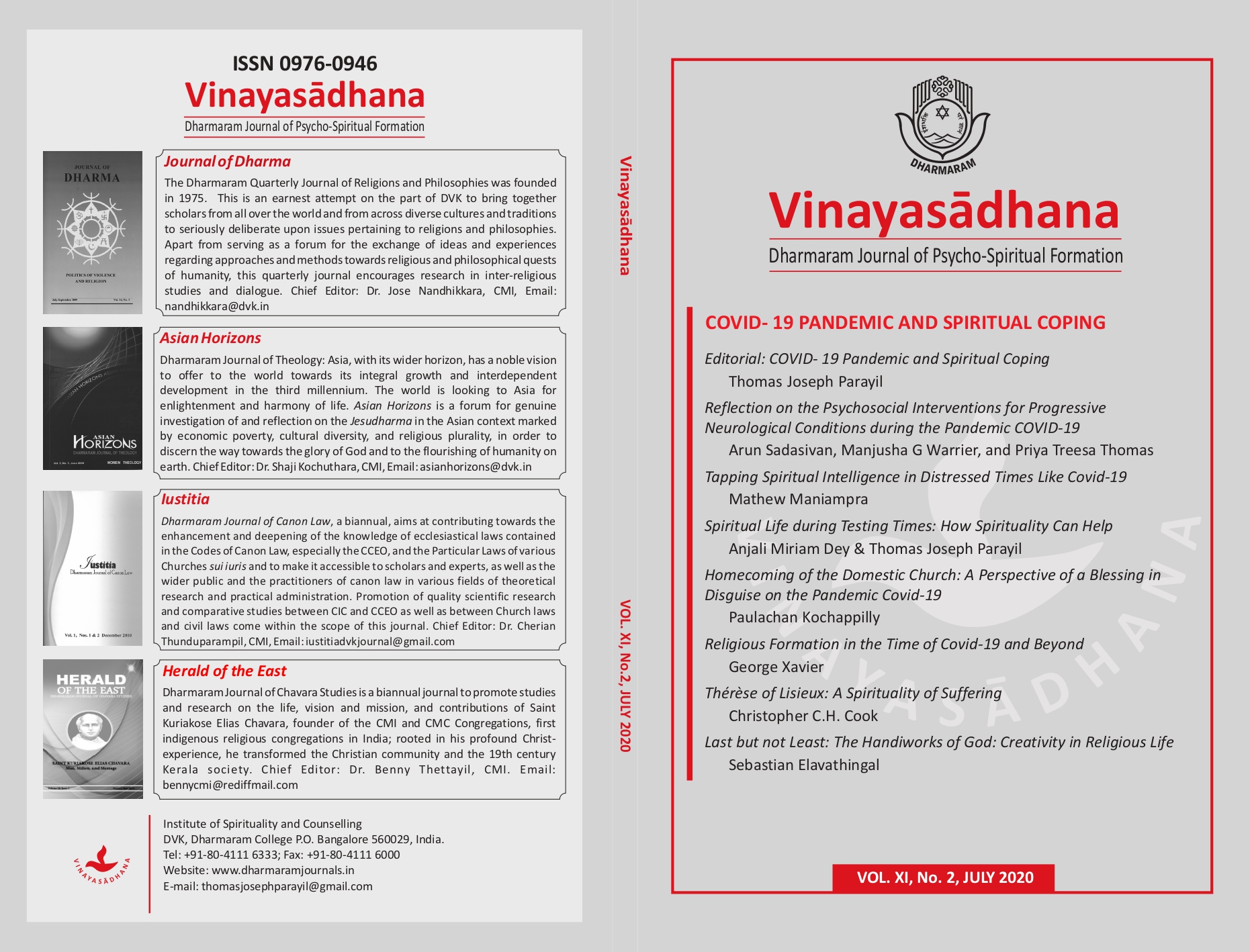Reflection on the Psychosocial Interventions for Progressive Neurological Conditions during the Pandemic COVID 19
Keywords:
Psychosocial-intervention, Neurology, Tele Consultation, Covid-19Abstract
Life during COVID-19 witnessed major changes; the health sector demonstrated these changes the most. Chronic neurological conditions, which have minimal specialized treatment options and infrastructure facilities in India, faced a significant challenge during this period. Tele consultations became an alternative strategy for almost all health conditions to ensure that the patients are reached and cared for. The current paper is a reflection on the experiences of psychiatric social work professionals working with various neurological conditions at a national quaternary referral care center for Neurological disorders in Southern India. Reflection on the care provided for four major progressive neurological conditions, Duchenne Muscular Dystrophy (DMD), Motor Neuron Disease (MND), Dementia, and Multiple Sclerosis (MS) found that most of the persons with these conditions and their families were happy and thankful about the initiative from the health care professionals. They communicated their concerns to the health care professionals, and appropriate interventions and referrals for the same were done through telephonic consultations. Telephonic consultations can be an effective strategy to ensure continuous care for various chronic conditions along with the general hospital-based follow-up and consultations even after the pandemic.
References
Birnkrant, D. J., Bushby, K., Bann, C.M., Apkon, S.D., Blackwell, A., Colvin, M.K., Cripe, L., Herron, A.R., Kennedy, A., Kinnett, K., Naprawa, J., Noritz, G., Poysky, J., Street, N., Trout, C.J., Weber, D.R., & Ward, L.M. (2018). Diagnosis and management of Duchenne muscular dystrophy, part 3: Primary care, emergency management, psychosocial care, and transitions of care across the lifespan. Lancet Neurol, 17, 445–55.
DMD muscular dystrophy medical management. Muscular Dystrophy Association (MDA). (2017). Retrieved from https://www.mda.org/disease/DMD-muscular-dystrophy/medical- management Goldenberg, M. M. (2012). Multiple sclerosis reviews. P T, 37(3), 175-184.
Gourie- Devi, M. (2008). The organization of neurology services in India: Unmet needs and the way forward. Neurol India, 56, 4-12.
Gourie-Devi, M. (2014). Epidemiology of neurological disorders in India: Review of background, prevalence and incidence of epilepsy, stroke, Parkinson’s disease, and tremors. Neurol India, 52, 588-98.
Leigh, P. N., Abrahams, S., Al-Chalabi, A., Ampong, M. A., Goldstein, L. H., Johnson, J., &Willey, E. (2003). The management of motor neurone disease. Neurology in Practice, 74, 32–47.
Nair, V.S., Warrier, M.G., Sadasivan, A., & Thomas, P.T. (2020). Telephonic follow-ups during COVID 19 pandemic in Chronic Illness: Lessons learned. International Social Work, 1-3.
Oliver, D. (2016). Palliative care for patients with motor neurone disease: Current challenges. Degenerative Neurological and Neuromuscular Disease, 65, 1-14.
Shaw, C., Quinn, A., & Daniel, E. (2014) Amyotrophic lateral sclerosis/motor neuron disease. In: Oliver, D, Borasio, G, &Johnston, W (eds) Palliative care in amyotrophic lateral sclerosis: from diagnosis to bereavement (3rd ed.). Oxford: Oxford University Press, Oxford.
Thomas, P.T., Annam, H., Ravindu, Warrier, M. G, &Netravathi, M. (2020). Integration of teleneurology within the health system to manage patients of multiple sclerosis and other CNC demyelinating disorders during the COVID-19 pandemic. Ann Indian AcadNeurol [Epub ahead of print] [cited 2020 Sep 4]. Available from: http://www.annalsofian.org/preprintarticle.asp?id=294283.
Weinshenker, B. G. (1996). Epidemiology of multiple sclerosis. Neurol Clin, 14(2), 291-308.
WHO Situation Report. (2020). Coronavirus Disease 2019 (COVID-19): Situation Report. World Health Organization.
World Health Organization. (2018). Noncommunicable Diseases Report 2018. World Health Organization, 223. Retrieved from apps.who.int/iris/handle/10665/274512.
World Health Organization. (2006). Neurological disorders: Public health challenges. Geneva, Switzerland: WHO.


